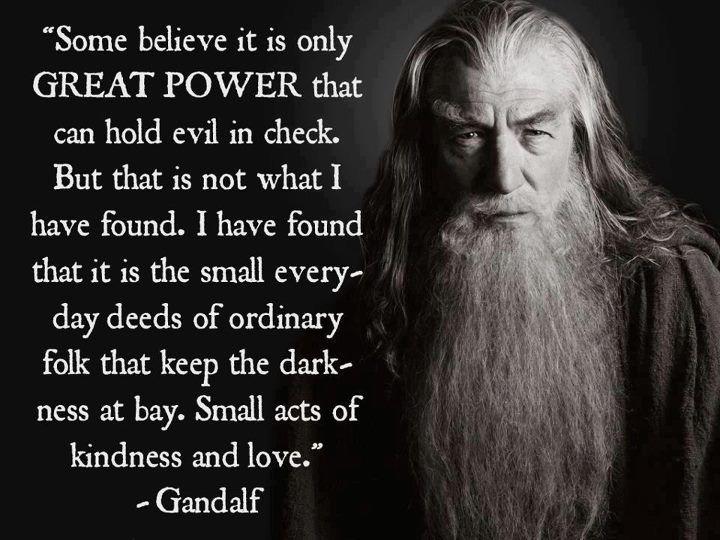“Conquer rage with humility, conquer evil with goodness, conquer greed with generosity, and conquer lies with truth.”
Dhammapada, via A Calendar of Wisdom (Page 110)
“Catastrophization ends up distracting us from the long-term systemic work we signed up to do. It’s a signal that we care about what’s happening right now, but it also keeps us from focusing on what’s going to happen soon. The best way to care is to persist in bending the culture and our systems to improve things over time.”
Seth Godin, Blog
“We would think a man insane who, instead of covering his house with a roof and putting windows in his window frames, goes out in stormy weather, and scolds the wind, the rain, and the clouds. But we all do the same when we scold and blame the evil in other people instead of fighting the evil which exists in us. It is possible to get rid of the evil inside of us, as it is possible to make a roof and windows for our house. This is possible. But it is not possible for us to destroy evil in this world, just as we cannot order the weather to change and the clouds to disappear. If, instead of teaching others, we would educate and improve ourselves, then there would be less evil in this world, and all people would live better lives.”
Leo Tolstoy, A Calendar of Wisdom (Page 33)
“If we’d like the world to work better, more fairly and with more of a long-term view, we have to identify the systems that push participants to do the opposite. And then we need to consistently and persistently work to change the incentives that cause the entities in those systems to act the way they do.”
Seth Godin, Blog
“As an organizer I start from where the world is, as it is, not as I would like it to be. That we accept the world as it is does not in any sense weaken our desire to change it into what we believe it should be—it is necessary to begin where the world is if we are going to change it to what we think it should be.”
Saul Alinsky, Rules for Radicals, via The Daily Stoic (Page 237)
“I never dreamed of being a Shakespeare or Goethe, and I never expected to hold the great mirror of truth up before the world; I dreamed only of being a little pocked mirror, the sort that a woman can carry in her purse; one that reflects small blemishes, and some great beauties, when held close enough to the heart.”
Peter Altenberg, via Sunbeams (Page 126)
“It came to me that reform should begin at home, and since that day I have not had time to remake the world.”
Will Durant, via Sunbeams (Page 120)
“This really is my life’s work, to go where there is suffering. I suppose, like us all, I’m learning how to deal with the suffering of the world inside myself… to deal with my own pain and most importantly to still have the ability to be proactive.”
Kayla Mueller, via Becoming Wise (Page 263)
“The way to set moral change in motion, [Anthony Appiah] says, is not to go for the jugular, or even for dialogue—straight to the things that divide you. Talk about sports. Talk about the weather. Talk about your children. Make a human connection. Change comes about in part, as he describes it, by way of ‘conversation in the old-fashioned sense’—simple association, habits of coexistence, seeking familiarity around mundane human qualities of who we are.”
Krista Tippett, Becoming Wise (Page 135)
“People who have turned the world on its axis across history have called humanity to love. It’s time to dare this more bravely in our midst, and dare learning together how love can be practical, creative, and sustained as a social good, not merely a private good.”
Krista Tippett, Becoming Wise (Page 10)
“It is simply untrue that all our institutions are evil, that all adults are unsympathetic, that all politicians are mere opportunists, that all aspects of university life are corrupt. Having discovered an illness, it’s not terribly useful to prescribe death as a cure.”
George McGovern, via Sunbeams (Page 89)
Happy But Never Satisfied – Motivational or Misleading?
Excerpt: Many people love the phrase “Be happy, but never satisfied” and they find it motivational. But, what if it was actually misleading and dangerous for our mental framework?
Read More »Happy But Never Satisfied – Motivational or Misleading?
“Idealistic reformers are dangerous because their idealism has no roots in love, but is simply a hysterical and unbalanced rage for order amidst their own chaos.”
William Irwin Thompson, via Sunbeams (Page 67)
“Do you change people first or do you change society? I believe this is a false dichotomy. You have to change both simultaneously. If you’re changing only yourself and have no concern for changing the society, something goes awry. If you’re changing only society but not changing yourself, something goes awry, as tended to happen in the late 1960s. Now, ‘simultaneously’ may be an overstatement, because I think there are periods when one has to concentrate on one or the other. And there are periods in a society, in a culture, when the emphasis is appropriate only on one or the other. What I’m trying to say is, never lose sight of either the internal world or the external world, the peace within and the peace based on justice on the outside.”
David Dellinger, via Sunbeams (Page 66)
Sadhguru Quote on Transforming The World and Where To Focus Your Efforts First
“You cannot transform the world without transforming the individual.”
Sadhguru, Inner Engineering (Page 262)
Beyond the Quote (300/365)
Just like you cannot transform a wall without transforming each individual brick. Or a football team without transforming each of the individual players. Or a relationship without transforming each of the individual actions. What most people miss, in my opinion, is the immediate opportunity in exchange for a grandiose vision. Our opportunity to change the world is right in front of our faces every day, but so many of us are too busy thinking about how we can change the whole world and are doing nothing instead.
Read More »Sadhguru Quote on Transforming The World and Where To Focus Your Efforts First“Never before has a generation of people known the comforts and conveniences we have today. And yet, we cannot claim to be the most joyful or loving generation in history. A vast number of people live in states of constant anxiety and depression. Some are suffering their failure, but ironically, many are suffering the consequences of their success. Some are suffering their limitations, but many are suffering their freedom. What is missing is human consciousness. Everything else is in place, but the human being is not in place. If human beings stopped obstructing the path to their own happiness, every other solution is at hand. You cannot transform the world without transforming the individual.”
Sadhguru, Inner Engineering (Page 262)



